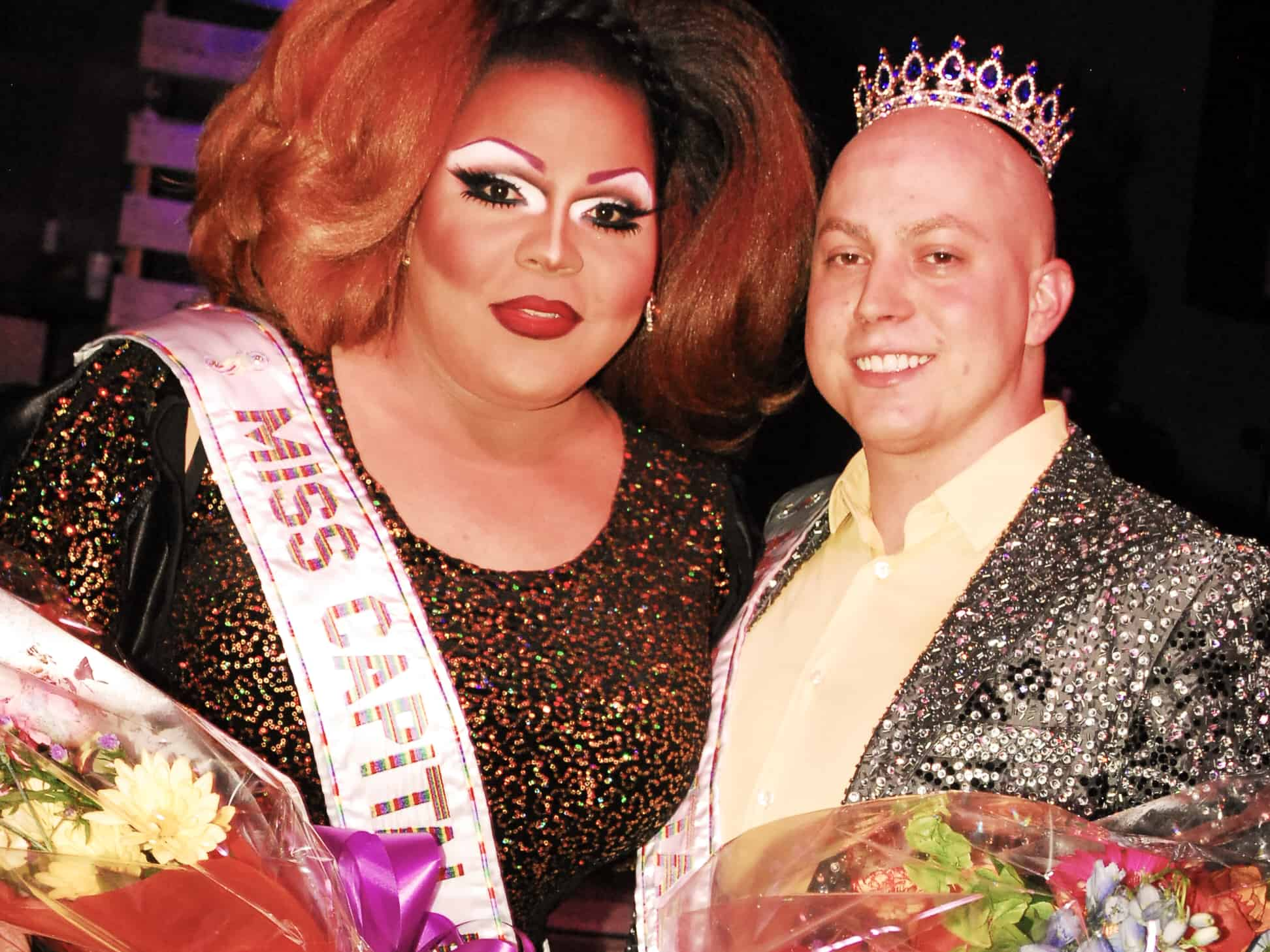Maryland House passes transgender-rights bill
The Maryland House of Delegates passed a bill to prohibit discrimination against transgender people in employment, housing, credit and public accommodations by a vote of 82-57 on Thursday, setting it up to to be signed into law by Gov. Martin O’Malley (D).
The bill, SB 212, takes protections for transgender people that already exist on a local level in Baltimore City, Baltimore County, Howard County, and Montgomery County and extends them to the state’s remaining 20 counties. The measure previously passed the state Senate earlier this month on a 32-15 vote.
The bill previously encountered several obstacles on its way to passage. First, it had to pass the Senate Judicial Proceedings Committee, which had previously rejected the bill every year — save 2011 — that it was considered for the past eight years. The 2011 bill passed without protections in public accommodations, and made it to the Senate floor, only to be voted back into committee. After eight years of lobbying, Democrats on the committee eventually voted 8-3 to move the bill to the floor.
The bill encountered a second obstacle when it landed in the House Health and Government Operations Committee and was assigned to the Government Operations Subcommittee, which was considered much more hostile to transgender rights than two other subcommittees — either Minority Health Disparities or Public Health & Long Term Care — where it could have landed. Afterwrangling behind the scenes to lobby two Democrats with spotty LGBT records, the subcommittee eventually voted 5-2 to bring the measure before the full committee, which then approved the measure, 13-9, moving it to the House floor for debate by the full lower chamber.
During debate on the bill’s third and final reading, House Republicans, as they did during the bill’s second reading on Wednesday, attempted to gut the bill’s protections for transgender people and impede its progress by offering eight different amendments, mostly aimed at stripping public accommodations, changing the name of the bill or changing the definitions of various terms within the bill under the guise of protecting people from would-be assailants in public restrooms. Had any of those amendments been adopted, the bill would have been forced to go back to the Senate for further reconsideration in order to make the bill language identical.
During debate, House Republicans, along with some conservative Democrats, seized upon and invoked potential horror scenarios, focusing on so-called “bathroom panic,” in which they claimed extending protections in public accommodations to transgender people would threaten the safety of women and girls and put them at risk of sexual assault. Under the bill’s language, a private facility may offer an “equivalent private space” that is functionally equivalent for transgender people in facilities that are designed to accommodate a particular sex, are designed to accommodate more than one user at the same time and in which it is customary to disrobe in view of other users.
Several Republican women in particular pushed for amendments to the bill, claiming that the bill as written placed them at risk from sexual predators or people with “ill intent.”
“This law allows a Mack Truck to drive through the middle of it,” House Minority Whip Kathy Szeliga (R-Baltimore, Harford counties) said.
Del. Jeannie Haddaway-Riccio (R-Caroline, Dorchester, Talbot, Wicomico counties), one of the Republicans seeking to become lieutenant governor and the running mate of Harford County Executive David Craig, said she was “shocked and offended” that supporters of the bill were opposed to the amendments, which she claimed would “protect against people with malicious intent.”
Del. Kathy Afzali (R-Frederick Co.) raised the specter of a “man who thinks he’s a woman but who has male genitalia” being allowed to shower at a public pool with young girls, and asked about provisions for places such as showers and locker rooms. But Del. Joseline Peña-Melnyk (D-Anne Arundel, Prince George’s counties) pointed out that an “equivalent private space” could be as simple as “a rod and a shower curtain.”
Del. Emmett Burns (D-Baltimore County) resorted to citing the Bible and raising the issue of whether his refusal to hire a transgender person at his restaurant could make him a target of a lawsuit.
“What this bill does is change nature,” Burns said. “We can write all of the bills we want but we cannot change nature.”
But advocates for the bill fired back at opponents’ accusations and horror stories or hypothetical scenarios, defending the bill and urging its passage.
Del. Maggie McIntosh (D-Baltimore City) recounted the story of being taught as a child in Sunday school that people of darker skin colors were more sinful and not worthy of redemption. She also recalled her own experience, as a legislator, standing on the House floor as her colleagues debated Maryland’s 2001 law prohibiting discrimination in employment, housing and public accommodations against people based on their sexual orientation.
“The world was going to come to an end,” McIntosh said. “And it didn’t.”
Del. Kirill Reznik (D-Montgomery Co.), saying he was speaking on behalf of “the straight white guys that support this bill,” pointed out that opponents’ justifications for why they opposed the bill were less than honest. He noted that the majority of opponents had voted against a 2011 bill that covered employment, housing and credit but did not include public accommodations, and yet still referred to it as a “bathroom bill.”
Sen. Rich Madaleno (D-Montgomery Co.), the chief Senate sponsor of the bill, worked closely with the Maryland Coalition for Trans Equality, a collection of more than 50 political, social-justice, religious, and community groups advocating for transgender rights, to pass the bill. The coalition also recruited Del. Luke Clippinger (D-Baltimore City) to sponsor the House version, HB 1265.
But because neither Madaleno nor Clippinger sat on any of the appropriate committees that heard testimony on the bill, the coalition had to rely on several other lawmakers — namely Sen. Jamie Raskin (D-Montgomery Co.), out lesbian Del. Bonnie Cullison (D-Montgomery Co.) and Peña-Melynk, who helped shepherd the bill through the House, answering Republicans’ inquiries and arguing as to why their amendments should be rejected — to help navigate the measure through the respective committees and debates on the Senate and House floor.
“I am proud of my 81 colleagues who voted in support of fairness for transgender Marylanders today,” Clippinger said in a statement issued by the Coalition for Trans Equality. “Allowing people to earn a living and live without fear of discrimination is the right thing to do.”
Carrie Evans, the executive director of LGBT rights organization Equality Maryland, one of the partners in the Coalition for Trans Equality, commended the House for passing SB 212.
“This is the culmination of a very long and sustained effort by Equality Maryland to ensure transgender Marylanders are included in our state’s anti-discrimination laws,” Evans said in her statement. “Today’s win is the result of so many people and organizations – transgender individuals and their families showing up and telling their stories year after year, elected officials like Senator Rich Madaleno and Delegates Luke Clippinger, Bonnie Cullison, and Joseline Peña-Melynk, many years of dedicated and committed Equality Maryland Board and staff, amazing coalition partners like the Human Rights Campaign and so many more people and organizations that we will highlight in the coming months.”
Dana Beyer, the executive director of Gender Rights Maryland, one of the major organizations not affiliated with the Maryland Coalition for Trans Equality that also advocated on behalf of the bill, issued a statement praising the bill’s passage.
“The Maryland transgender community can at long last celebrate its equality as full partners in the LGBT community,” Beyer said in a statement. “After eight long years of struggle, thirteen years after the passage of the sexual orientation anti-discrimination act, Maryland joins with seventeen states, D.C. and Puerto Rico, in providing comprehensive LGBT equality. I’d like to thank Delegates Peña-Melnyk, Clippinger and Cullison for their successful efforts this session, but I also want to remember the efforts of Delegates Hubbard, Mizeur, Kelly and others over the years who made this vote possible.”
Beyer has announced she will be running for state Senate against Madaleno in 2014, which has angered some transgender people affiliated with the Coalition for Trans Equality, which is backing Madaleno.
The gender identity bill now heads to O’Malley’s desk. The governor has previously promised to sign the measure, which could still face a referendum if opponents are successful in gathering enough signatures to petition it to the November ballot. Maryland will become the 18th state, plus D.C., to to protect residents and visitors against discrimination on the basis of gender identity and expression.
[Photo: Maryland State Capitol. Credit: Jimmy Emerson/Flickr.]
Support Metro Weekly’s Journalism
These are challenging times for news organizations. And yet it’s crucial we stay active and provide vital resources and information to both our local readers and the world. So won’t you please take a moment and consider supporting Metro Weekly with a membership? For as little as $5 a month, you can help ensure Metro Weekly magazine and MetroWeekly.com remain free, viable resources as we provide the best, most diverse, culturally-resonant LGBTQ coverage in both the D.C. region and around the world. Memberships come with exclusive perks and discounts, your own personal digital delivery of each week’s magazine (and an archive), access to our Member's Lounge when it launches this fall, and exclusive members-only items like Metro Weekly Membership Mugs and Tote Bags! Check out all our membership levels here and please join us today!


























